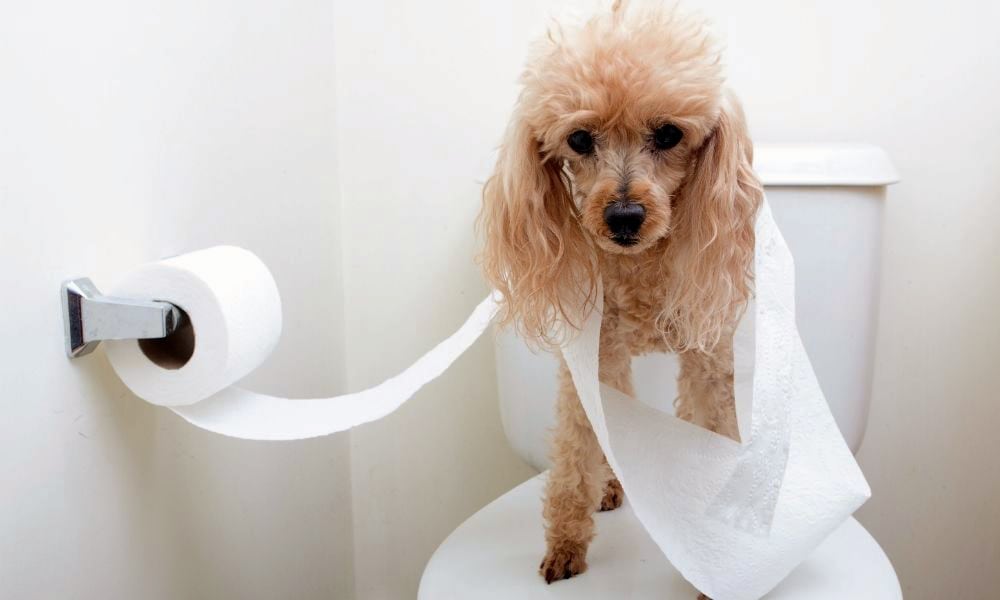What You Need to Avoid Flushing Animal Waste Down the Toilet
What You Need to Avoid Flushing Animal Waste Down the Toilet
Blog Article
What are your ideas about Can You Flush Dog and Cat Poo Down the Toilet??

When it involves taking care of waste, especially animal waste, lots of people commonly consider the convenient choice of flushing it down the bathroom. Nonetheless, this seemingly easy service can have serious repercussions for the atmosphere and public health. In this post, we'll explore why flushing animal waste down the toilet is a bad idea and give alternate techniques for appropriate disposal.
Intro
Correct garbage disposal is important for preserving environmental sustainability and public health. While it may seem harmless to purge animal waste down the bathroom, it can cause different issues, both for the setting and human health.
Dangers of flushing animal waste
Environmental influence
Flushing animal waste presents damaging bacteria and virus into rivers, which can negatively influence water ecological communities. These microorganisms can infect water sources and injury aquatic life, interrupting delicate ecosystems.
Public health concerns
Pet waste contains hazardous microorganisms such as E. coli and Salmonella, which can posture serious health dangers to humans. Purging pet waste down the toilet can pollute water materials, bring about the spread of diseases and infections.
Alternatives to flushing
Instead of purging pet waste down the bathroom, there are numerous different disposal approaches that are extra eco-friendly and sanitary.
Composting
Composting animal waste is a green means to throw away it. By composting, raw material is broken down into nutrient-rich soil, which can be made use of to feed gardens and plants.
Landfill disposal
Dealing with animal waste in a land fill is one more option. While not as eco-friendly as composting, it is a much safer alternative to flushing, as it protects against the contamination of water sources.
Pet dog waste disposal systems
There are customized animal garbage disposal systems offered that securely and hygienically deal with animal waste. These systems commonly use enzymes to break down waste and get rid of smells.
Actions to proper animal garbage disposal
To make certain proper disposal of pet waste, adhere to these steps:
Scooping and nabbing waste
Consistently scoop and bag pet waste utilizing biodegradable bags. This stops waste from infecting the environment.
Using marked waste containers
Dispose of bagged pet waste in marked waste containers, such as garden compost containers or garbage dump bins. Avoid flushing it down the bathroom in any way expenses.
Cleaning up can and pet dog locations consistently
Frequently clean litter boxes and family pet areas to prevent the build-up of waste and germs. Use pet-safe cleansing products to keep hygiene.
Advantages of appropriate disposal approaches
Adopting correct disposal methods for pet waste offers a number of advantages:
Reduced environmental pollution
Appropriate disposal approaches decrease the threat of environmental pollution, safeguarding rivers and ecosystems from contamination
Reduced danger of water contamination.
By staying clear of flushing pet waste down the toilet, the risk of water contamination is substantially lowered, safeguarding public health.
Improved sanitation and hygiene
Proper disposal approaches promote better sanitation and health, producing a much safer atmosphere for both people and animals.
Conclusion
In conclusion, flushing animal waste down the commode is unsafe to the setting and public health. By embracing alternative disposal methods and following appropriate waste management techniques, get more info we can lessen the unfavorable influence of pet waste and contribute to a cleaner, much healthier planet.
What To Do With Dog Poo – The Do's And Don'ts Of Disposing Of Faeces
Dog poo bins
Some councils provide dedicated dog waste bins in popular dog-walking areas that can take dog poo that has been bagged but you can legally dispose of dog waste in any public litter bin, as long as it is securely bagged. This also applies to your wheelie bin at home.
Do not flush
Water companies do not recommend flushing dog faeces down the toilet because certain parasites can survive the water processing treatment and are potentially harmful to humans. You should also never consider flushing dog poo that has been bagged down the toilet as the bags will not break down and instead create severe blockages in the sewage system.
In the woods
The Forestry Commission promotes a ‘stick and flick’ method for dealing with waste in the woods. This means finding a stick and using it to flick any poo from off the path so that it is out of the way of other walkers. You could also bury it as long as it is not in an area where there might be livestock.
Livestock
Parasites found in dog poo can be transmitted to livestock if they inadvertently eat infected faeces that has been left on grazing land. This could result in the death of sheep or abortion in cattle so you should always make sure you pick up your dog’s waste in fields where livestock could be present.

Frequently clean litter boxes and family pet areas to prevent the build-up of waste and germs. Use pet-safe cleansing products to keep hygiene.
Advantages of appropriate disposal approaches
Adopting correct disposal methods for pet waste offers a number of advantages:
Reduced environmental pollution
Appropriate disposal approaches decrease the threat of environmental pollution, safeguarding rivers and ecosystems from contamination
Reduced danger of water contamination.
By staying clear of flushing pet waste down the toilet, the risk of water contamination is substantially lowered, safeguarding public health.
Improved sanitation and hygiene
Proper disposal approaches promote better sanitation and health, producing a much safer atmosphere for both people and animals.
Conclusion
In conclusion, flushing animal waste down the commode is unsafe to the setting and public health. By embracing alternative disposal methods and following appropriate waste management techniques, get more info we can lessen the unfavorable influence of pet waste and contribute to a cleaner, much healthier planet.
What To Do With Dog Poo – The Do's And Don'ts Of Disposing Of Faeces
Dog poo bins
Some councils provide dedicated dog waste bins in popular dog-walking areas that can take dog poo that has been bagged but you can legally dispose of dog waste in any public litter bin, as long as it is securely bagged. This also applies to your wheelie bin at home.
Do not flush
Water companies do not recommend flushing dog faeces down the toilet because certain parasites can survive the water processing treatment and are potentially harmful to humans. You should also never consider flushing dog poo that has been bagged down the toilet as the bags will not break down and instead create severe blockages in the sewage system.
In the woods
The Forestry Commission promotes a ‘stick and flick’ method for dealing with waste in the woods. This means finding a stick and using it to flick any poo from off the path so that it is out of the way of other walkers. You could also bury it as long as it is not in an area where there might be livestock.
Livestock
Parasites found in dog poo can be transmitted to livestock if they inadvertently eat infected faeces that has been left on grazing land. This could result in the death of sheep or abortion in cattle so you should always make sure you pick up your dog’s waste in fields where livestock could be present.

I was introduced to that write-up on from a good friend on another web property. Liked our write-up? Please quickly share it. Help other people find it. I am grateful for being here. Revisit us soon.
Book Report this page